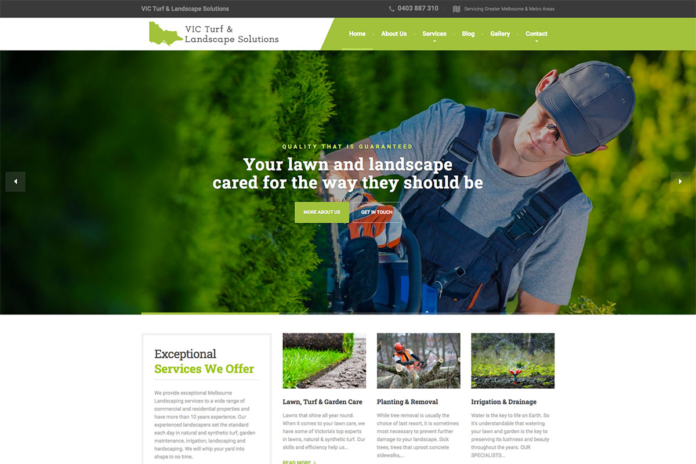Home matters. And your website is the digital home of your landscaping company. If you’re in the market for landscape web designers, your top priorities will be finding a group capable of creating a site that not only looks great but also runs smoothly and accomplishes your objectives.
Website design for landscapers is sometimes complex and time-consuming. Do you find it hard to get started on or complete other marketing projects?
The time you have is precious. Hiring a professional to construct the landscaping website for you allows you to devote your time and energy to more strategic tasks, such as business expansion planning or client design work.
The Benefits of Hiring a Professional Web Designer
Web designers have a wealth of knowledge and experience to offer. They are aware of the ideal call to action (CTA) and where to place it on your landscaping website, as well as the preferences and behaviors of your target audience.
With this information in hand, they can design a website that not only looks great but also follows all the rules of search engine optimization.
In addition, a skilled web designer can help you convey your value to customers. With the right combination of images, colors, and fonts, they can assist represent your company in the best flattering way.
Set a specific budget.
How much are you hoping to invest in the website’s development or maintenance? This will determine what kind of company or web developer will be hired. It would be pointless to look for a firm that specializes in million-dollar projects if your budget is merely $5,000.
Tips to hire a landscaping website designer
- Select who will update the web content.
Sometimes it’s more expensive to keep a website up to date with fresh content than to create it from scratch. Who will be responsible for making the updates—your staff, the web developer, or a consultant? In turn, this impacts the choice of tools and layout. Maintaining a high position in search engine results pages also requires regularly updating your website with fresh content.
- Ask for recent samples of their work.
Is there a clear connection to the requirements of your business? In this industry, they should have made a website like this before. You should avoid being the first one to do something new with your firm.
- Ask for customer references.
Numerous businesses are capable of doing the task, but the question is how are they to be collaborated with? If you want to find a reliable web partner, a good attitude is just as crucial as technical skill.
- Give them examples of things you like.
If you can provide a rough outline of what’s required, it will help them do the job for less money. It is more cost-effective to “copy” an existing design than to come up with something completely original. Start by doing a web search for your chief competitor, and take note of the site’s layout and features.
- Make the site search engine friendly.
This is crucial if you want people to visit your website. Search works best when written content is kept up to date and less “Flash” video is used.
- Keep the website safe.
Every day, the internet becomes a more dangerous place. How will we keep hackers off of the site? When the server goes down, what will happen? Who will get the call, and what will they say? Protect ownership. When working with a freelancer, it’s important to have a “work for hire” contract in place so that you can claim ownership of the final result.
- Get a set price.
Did the firm offer you a price range or is it a set price? You should avoid being put in a situation where you have to pay for unapproved cost overruns. How much will it cost to keep the site up and running?
What good tips did you follow when you hired your last webmaster? Who makes updates and maintains your website? Remember this while you look for a new web designer.








